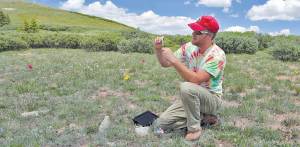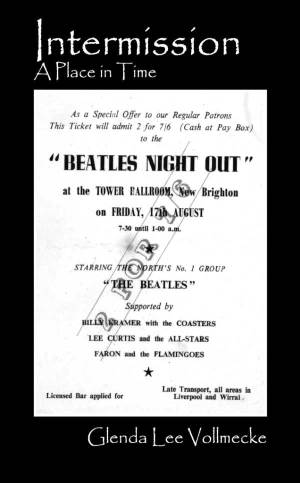by Martha Quillen
Whom do you trust?
I don’t trust people because they’re reputed to be experts. Or because they write books, or say they’re Christians or enlightened or accredited. And I don’t trust FOX news commentators, MSNBC personalities, corporate spokesmen, President Obama or Salida city council members and administrators to tell me the whole truth and nothing but the truth. I’m not even sure they know the whole truth, but if they do, they’ll surely spin it to support their agendas.
Nor do I trust that 97 percent of scientists agree upon anything or that it matters if they do. Repeating this assertion over and over has made the climate change debate about what sort of people are for political action rather than what we can do, and has given powerful publications including the Wall Street Journal and Forbes Magazine a questionable number to dispute. If you want to convince people to join your cause, it’s probably best not to call them ignorant naysayers and science deniers.
And now this whole business of how many scientists it takes to change a society has led me astray. Talk about not staying on message. I was writing about trust and had not yet come to my conclusion, which is that I think the least trustworthy people are, drum roll please: You and me.
Most of us agree that something is wrong in the United States. We’re concerned because our representatives can’t seem to compromise or negotiate. Our government, politics and public discussions seem to have slipped out of our control. A small percentage of extremists have more influence than the large preponderance of moderates. Money sways legislators; the middle class is faltering; and our Supreme Court justices no longer even pretend to be objective players guided by tradition and the law rather than current politics.
So why is inequality increasing in America? Why are moneyed interests triumphing at every turn? And why are we fighting so much?
Sometimes I think the big, bad shifts in attitude and policy that are eclipsing our boring old apathetic style are being generated right here at home – and in kitchens, living rooms, churches and meeting halls in Florida, South Carolina, Ohio, Texas, Arizona, California …
But not because most of us want all of this bickering, angst and drama. I don’t believe that for a moment. Yet we repeatedly fall into the fray, then let the fray distract us from important issues, which strikes me as totally bonkers and unproductive. Why can’t we work anything out?
As usual, I tried to figure this out by reading a lot, and I encountered plenty of theories: Citizens United put more money in the game; modern governance relies too much on experts who have their own interests to serve; a trend toward ideological purity has rendered us incapable of compromise …
But then I read a letter in the local paper that accused the City of Salida’s critics of being obstructionists, and the writer was right. But the entire purpose of his letter was to obstruct the protected speech and dissent of a group that’s been questioning Salida’s use of water enterprise funds and the city’s compliance with open records law.
From Washington, to Denver, to Salida, obstructionists are arguing every point, and are thereby slowing down the system and preventing action. The Mountain Mail’s letter writer might object by claiming that Salida’s critics are preventing progress. But arch conservatives would doubtless accuse people like me of obstructing their progress in establishing fetal citizenship laws.
Progress is a matter of how you see things. And once I realized that, it occurred to me that we may not be as far apart on the issues as we pretend. And there may actually be method in our madness. Our leaders probably have an agenda, but the citizens? We appear to be stalling. The question is, why? I suspect it’s because there are no clear solutions for the big issues facing us. We aren’t sure how to counter climate change, or even if it can be done. And the economy?
The Mountain Mail recently ran a headline announcing that “Nearly half of Salidans pay more than 30 percent of income on housing.” This was dismal news because according to the U.S. Department of Housing and Urban Development, “Families who pay more than 30 percent of their income for housing are considered cost burdened and may have difficulty affording necessities such as food, clothing, transportation and medical care.”
But the next day, the newspaper ran another article because city officials had pointed out an erroneous rental stat: Salida’s average rents were lower, not higher, than the state’s. (But the Mail got the stats on our median income right, and our paucity is disturbing.) The paper tried to clarify matters by adding more stats – I noticed an error in those, too, and concluded that we could dispute these numbers for ages and thereby postpone taking action forever.
And here’s another example of a problem we’ve tabled for decades: In June, the City of Salida issued a survey asking residents what they wanted done about the city’s growing deer population, and the possibilities included employing riflemen or bow hunters to cull them. Mule deer populations have been declining in Colorado for years, and I hate the idea of killing more of them. However, my attitude about Salida’s deer is mostly sentimental.
But no matter what the city decides, it won’t eliminate our wildlife problems, because Colorado real estate developers are still converting our wildlands into suburbs. And once deer, antelope, bear, elk and cougar grow accustomed to people, they often discover the advantages of city life: irrigated landscapes, garages, carports and garbage cans.
In our era, complaints about wildlife in urban areas are legion. There are cougars on bike paths; bears in backyards; dumpster-diving coyotes; and coons and skunks enjoying trash-can takeout food across the country. There are even deer herds in the Bronx and on Staten Island.
Although we pride ourselves on our intelligence, humans are largely irrational. In Colorado we’ve spent millions restoring endangered lynx and moose, but in the meantime we’ve been displacing and thereby threatening countless other species.
Conflicts with wildlife, spiraling housing costs and under-compensated workers are problems induced by the moneymaking schemes we’ve embraced. To be fair, promoting rampant growth, wilderness homes and conversion of open spaces into sprawling suburbs has long been a standard economic development policy. But the consequences of this improvement plan are habitat loss, migration corridor fragmentation, increased destruction due to wildfires, and displacement of both wildlife and human workers – who are forced to move to cheaper communities down the road as prices rise, which in turn causes long commutes, crowded highways, dead deer on those highways, inequality, and an ever-increasing gap between America’s rich and poor.
California made all of these results clear decades ago, and now it’s true right here in River City.
Can something be done? Of course. But the real question is whether we want to do anything. And I suspect that we don’t, because we have arrived at a point where fixing things may involve considerable change and sacrifice. And we love our trails, cars, roads, homes, mountain bikes, three-wheelers, jeeps and acreage as much as the deer love our ornamental shrubbery. So we stall, obstruct, veer off message and make our arguments about each other and not the issue, just as we do when we grapple with climate change, health care, alternative energy …
Martha Quillen walks daily and communes with Salida’s deer, who are surprisingly uncritical about recent developments.



